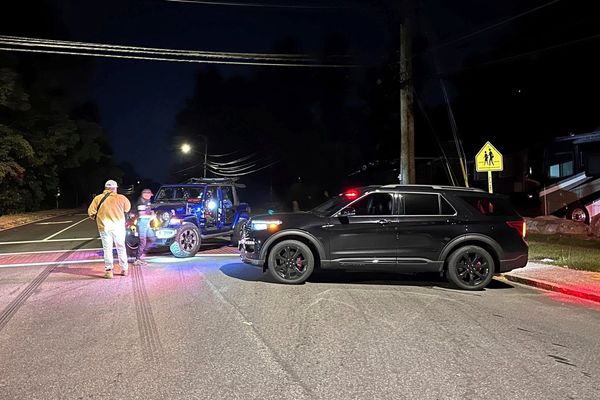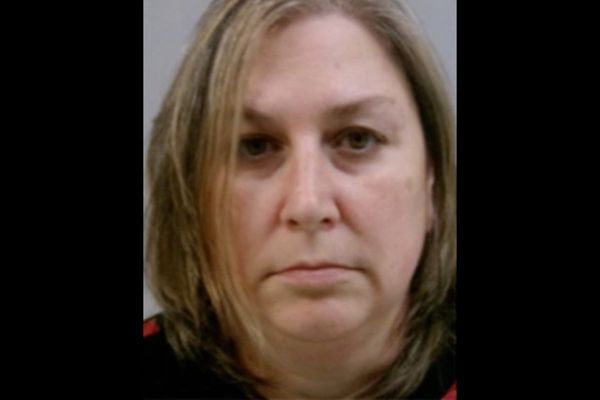Janessa Bidgood runs an annual event in her rural town that makes over $500,000 and contributes hundreds of thousands of tourism dollars to the wider community.
Hers is one of dozens of booming businesses in the north-west Queensland mining and agricultural hub of Cloncurry, home to several major projects worth over $9 billion.
So when one of the only banks in town, Westpac, decided to close its branch, residents were astounded.
"It just did not make any sense for Westpac to leave such a profitable region where it was making so much money from some of the biggest agribusinesses in the country," Cloncurry Shire Mayor Greg Campbell said.
Ms Bidgood said that without a bank branch in town, businesses would die, and the community would fade.
"If events like ours can't do our banking in town, it means a three-hour round trip to the nearest town," she said.
"That means our volunteers have to take days off work to do the banking and that would not be sustainable long-term."
Following heavy community backlash and pressure from the senate inquiry into bank closures in regional Australia, Westpac eventually backflipped on its decision, promising to maintain its presence in Cloncurry.
Senator Matt Canavan is chairing the Rural and Regional Affairs and Transport References Committee overseeing the senate inquiry.
The inquiry heard from residents, business owners and banks in Cloncurry and Ingham this week.
"Clearly our major banks are making major profits and they have to do a better job at making sure that Australians have adequate access to financial services," he said in Ingham on Thursday.
More than 650 bank branches have closed across regional and rural Australia since the start of 2020, according to estimates from the Financial Sector Union (FSU).
That is despite the big four earning record profits in their recent half-year results, reporting total cash earnings of $17.1 billion — up 19 per cent compared with the first six months of 2021.
As the big banks show little sign of reeling in their mass exodus, citing digital banking as the future, residents have been left scrambling for solutions.
Digital and postal
The big four have long maintained that online banking and banking via Australia Post are adequate replacements for brick-and-mortar branches.
"We're now seeing we have branches that have less than 10 people walking in them a day," general manager of ANZ’s retail branch network in NSW and the ACT Michael Wake told the inquiry.
"Part of our plan of action on this has been to develop an ATM network of 2611 ATMs and around 300 of those are across regional centres."
Residents and leaders of rural towns say unreliable digital connectivity makes online banking difficult and Australia Post's banking services are too limited.
"Why should Australia Post be made to pick up the pieces when banks completely abandon the towns they make so much money off?" Cr Campbell said.
Ms Bidgood said her events required cash floats of between $50,000 and $100,000 — which could not be accessed at Australia Post.
Don McDonald runs a family agribusiness which employs about 120 people on properties scattered across north-west Queensland.
He said internet banking was not always a reliable option in regional Australia.
"The digital connection and reception is so bad we have to fly the chopper closer to the tower just so we can pay our staff's wages," he said.
Public banking
The idea of a government-owned bank was tabled during the senate inquiry into bank closures in regional Australia, and has since been backed by Liberal Party senator Gerard Rennick.
He said public banks had the appeal of greater accountability to customers and a focus on investing back into communities.
"The banks, they're driven by the profit margin, that's fine — but we really need to look at having a public bank," Senator Rennick said.
"We have public hospitals, private hospitals. We have public schools and private schools.
"Why can't we have one public bank that acts as a backstop for both banking services and insurance services in the regions and across all of Australia?"
The concept of structural reform, and public banking was a focus during the Ingham hearing.
"We had a publicly owned bank, the Commonwealth Bank, and we saw that dismantled when the Hawke Labour government turned towards neoliberalism.
"It's not good enough and we need regional communities to have better," Senator-Allman Payne said.
"What we have to think about is solutions that will make them understand that they have a social licence to operate in this country and that they need to respect these communities and the people that work and live in them," Senator Linda White said
Mandating social licence
Regulating social licence to force banks to stay in rural areas has been a major point of discussion during the inquiry.
Customers support an increase in the minimum standards expected of banks, and the FSU has warned that without policed regulation, the banks will not change their behaviour.
But smaller community banks argue it is unfair to cement rules in an industry that is changing rapidly.
If imposed, the government should be held to the same social licence when it comes to the provision of public services, Cr Campbell said.
"If banks are made to follow a social licence then that mandate also needs to be applied to essential government services in the public sector," he said.
"When the public sector is not filling positions at hospitals, childcare services, and are actually cutting staff in those essential services, of course private institutions — like the banks — are going to follow that trend."
The inquiry is due to hand down its report by December 1.







